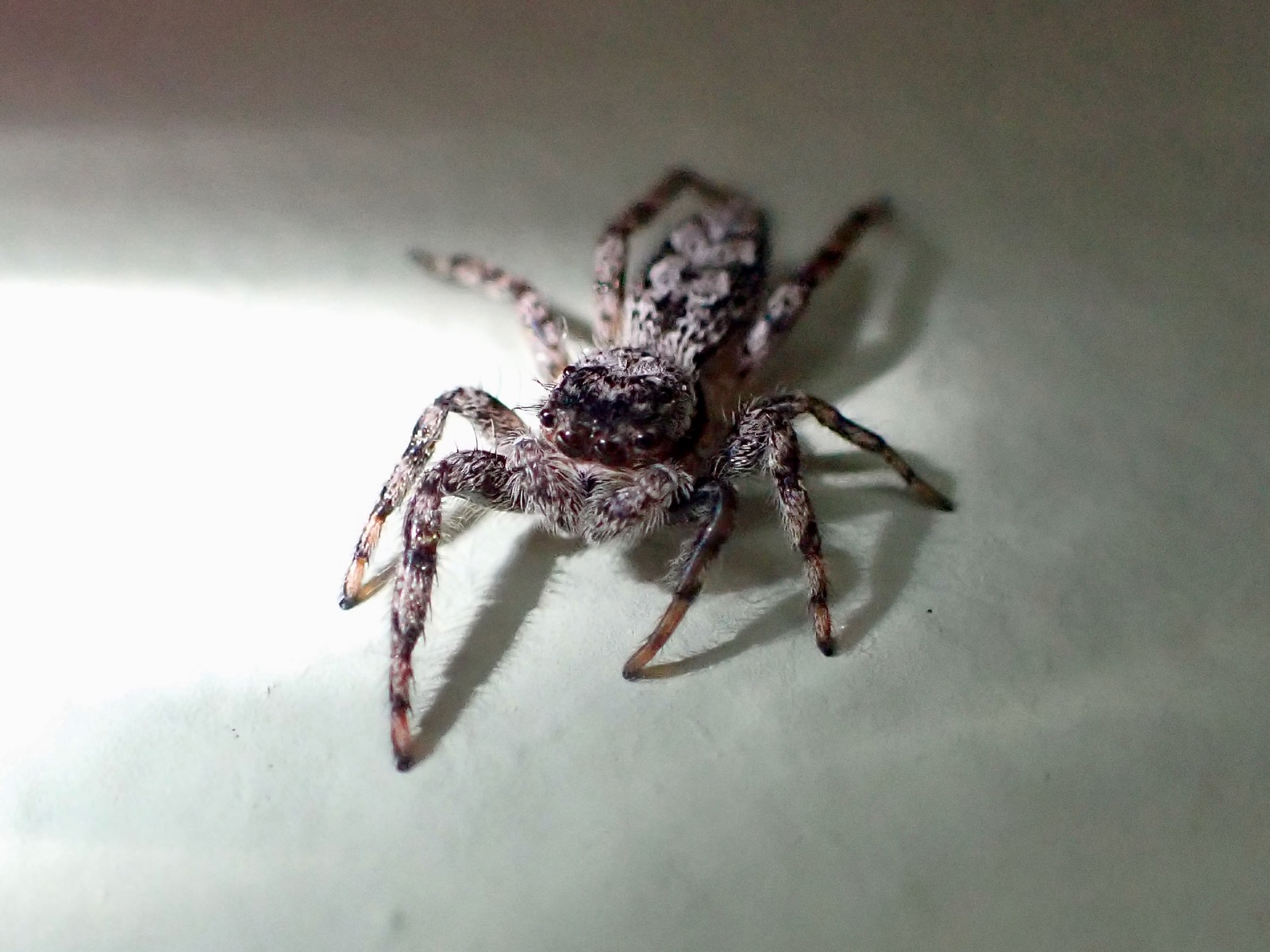
Mitzi spotted this on the wall this morning. I took the opportunity to play with the TG-6. I haven't practiced very much using the macro feature. This is a single frame using the flash. I took some stacked images using the LED lamp, but I thought this one showed the eyes a bit better.
Anyway, not a great photo, but something I don't see very often at home.
Rained quite a bit yesterday, but we got our little hike in early. I guess we're picking blueberries today. Maybe. Well, Mitzi is anyway.
We watched the utterly forgettable Family Plan on Apple TV+ last night. They have some kind of Samsung TV streaming service on the smart TV here, and we've watched some of its programming. It's pretty generic, decade or more older reality TV stuff, a couple of movie channels that seem to play the same old movies over and over. So I've been streaming movies from my iPhone via AirPlay.
We watched The Good German the night before, before I knew George Clooney was adding his voice to the cacophony of chaos.
The Good German deals with, as a plot element, Operation Paper Clip. In the movie, a file Clooney is looking for mentions that the contents were moved to Operation Overcast. I hadn't heard of that before, so I wondered if it was a fictional creation, or something real. Turns out, was the official name of Operation Paperclip, which was something that emerged because of all the paperclips holding all the dossiers together.
Anyway, looking into that led me to Operation Paperclip: The Secret Intelligence Program that Brought Nazi Scientists to America, by Annie Jacobsen. That's available on Kindle Unlimited, so I've started that book. I was somewhat aware of the effort to enlist former Nazi scientists in American research efforts after the war, but I wasn't aware of the extent of it, mostly Von Braun and the rocket people. It was far more extensive than that, and involved some pretty unsavory people.
(Anecdotally, one of the gunners mate (missiles) techs aboard BAINBRIDGE (CGN-25, not the DDG) told me that the launcher logic sequencer for the Mk 10 launcher was designed by a former German scientist or engineer. He supposedly had a breakdown or went nuts after designing it, because it was so complex. No idea if there's anything to that story, but it stayed with me.)
Before getting into the Paperclip book, I went looking for something in my Apple Books collection, and started reading The End: The Defiance and Destruction of Hitler's Germany 1944-45, by Ian Kershaw.
So I have three books going right now, Heather Cox Richardson's, Jacobsen's and Kershaw's.
They are all kind of related in the sense that I'm trying to understand how supposedly good people can be persuaded to do horrible things, go on to do them with great efficiency, and how, after a conflict, we can look the other way and do business with people who did horrible things. Also, how people who did horrible things are sometimes remediated into being somehow "respectable" people. This also speaks to the Confederacy, Robert E. Lee, "heritage not hate," and so on.
Everything is contingent, I guess.
Originally posted at Nice Marmot 08:19 Friday, 12 July 2024